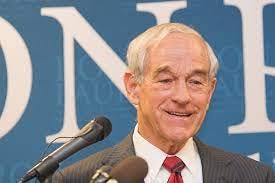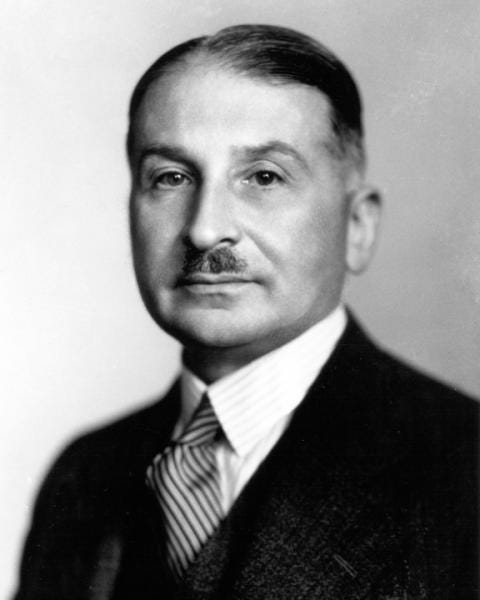The Rebranding of the Libertarian Party
How the Mises Caucus successfully performed a by-the-rules coup of the third largest political party in the United States
On March 26, 2022, the Libertarian National Convention began at the Nugget Casino Resort in Reno, Nevada. This was a particularly noteworthy event despite the extreme lack of coverage on the mainstream media and even an underrepresentation in independent media. I was not even aware of the event until earlier this month. It was the 50th anniversary of the convention, and it was reported to garner the largest attendance of the history of the event.
The Libertarian Party, or LP, has seemed to gain more attention in the most recent election cycles. Traditionally, the LP has not put forth the best possible candidates that would have represented the party well and been able to make an impact in an election. That was changing during the 2016 presidential election, when Gary Johnson was performing better than any previous libertarian presidential candidate, at one point even polling as high as 13%. He represented the party fairly well, was not too extreme in a way that would have turned a lot of people off of the party, and he seemed more well-versed in many of the political topics of the time than past libertarians.
The Commission on Presidential Debates has absurd rules that make it nearly impossible for any 3rd party candidate to qualify and to participate in a presidential debate. Obviously, candidates must be constitutionally eligible to become the president, but additionally the candidate must be on enough state ballots to have a mathematical chance of getting a majority of the electoral college. Those qualifications are sensible, because a person cannot legally become president without meeting those standards. However, the third requirement states: “a candidate must have a level of support of at least 15 percent of the national electorate, as determined by five national public opinion polling organizations, using the average of those organizations’ most recently publicly-reported results at the time of the determination.”
Most people typically assume that libertarians are more conservative-leaning, and while that may be true often, in 2016, Hillary Clinton was losing more of her voting base to Gary Johnson than was Donald Trump. Despite being the former Republican governor of New Mexico, Johnson was pro-marijuana legalization, believed in man-made climate change, and had a more traditional Democratic view on immigration reform. This attracted a lot of young progressives and moderates who strongly opposed Trump to support Johnson. This meant that both Jill Stein of the Green Party and Gary Johnson were contributing to Hillary Clinton slowly seeing her lead over Trump diminish.
It went downhill fast for Gary Johnson. During an interview in August 2016, he was asked a question about Aleppo, a Syrian city that was besieged at the time, and Johnson responded with “What is Aleppo?” A presidential candidate definitely ought to be informed about current events, but this was not an overtly self-destructive blunder. If you look at it in context, a libertarian is strongly against foreign intervention and the endless war machine, so it is not completely out of the question that he would not know about the events in Aleppo. After this incident, Gary Johnson received completely unfair coverage in the media, and while Trump also received unfair treatment, he was popular enough already to be able to withstand the attacks. Johnson was not disparaged in the same way that Trump was, with journalists more discussing how stupid they believed him to be rather than just calling him absurd names. It is widely believed that the political establishment intentionally sabotaged Gary Johnson and pushed the narrative through the media to get him out of the race because he was taking votes away from Hillary Clinton.
Anyways, after the events of 2016, the LP was hurting. In the years under Donald Trump, the “woke virus” was spreading rampant among progressive circles and made its way into nearly every aspect of society, from corporations to academia, and from Hollywood to political parties. The Libertarian Party became another victim of the woke ideology, and added a phrase to their official platforms stating “We condemn bigotry as irrational and repugnant.” While almost any generally good person will agree with that statement broadly, it uses the woke language which is becoming common in universities and other left-leaning areas. It is an unclear statement, and without providing a definition of bigotry, it could be interpreted in a number of ways.
Jo Jorgensen, the 2020 libertarian candidate for president, firmly stood by these statements and held numerous other beliefs that are common amongst the modern woke person. To quote Donald Trump, “Everything woke turns to shit.” That is what happened to Jo Jorgensen and the libertarian party from 2017 until 2022. Jo Jorgensen and the other libertarian candidates of 2020 gathered less than a meager 1.2% of the vote, 64% less than what Gary Johnson received in 2016 (3.3%).
In the last 6 or so years, the previous election cycles, the Donald Trump presidency, a global pandemic, and subsequent martial law lockdowns have led more and more people to become embittered with the government’s monopoly on violence. More and more people are seeing through the veil and choosing to leave the Republican and Democratic parties, recognizing that the partisanship is just an act for the public. (Remember Nancy Pelosi tearing up Trump’s speech? Then she voted for the increased spending and many of the policies he supported.) These are just a few of the events that have led to the Mises caucus insurrection.
At this point, I am sure that people are asking “what is this Mises caucus? Why are they relevant and who/what is Mises?”
The Mises caucus is a new group within the libertarian party, containing the true libertarians of the LP. The caucus is much younger in their members and in their leadership than typical political parties, with a majority of the Mises members in attendance at the LNC in the millennial generation. This infusion of fresh, new blood into the libertarian party may be exactly what can nurse the party back to life and take it to new heights. Many of its own members, including the founder of the Mises caucus, Michael Heise, refer to the Mises caucus members as Ron Paul libertarians. Michael Heise attributes much of his inspiration to found the Mises caucus to his disgust at Gary Johnson’s VP pick in 2016, Bill Weld. Weld was a lifelong Republican who was picked to be a moderate choice. However he lacked many beliefs central to true libertarianism, such as when it came to the war machine and gun regulations.
The Mises caucus is named after Ludwig von Mises, an Austrian School economist who rose to prominence after World War I. While at the University of Vienna from 1900-1906, Mises was heavily influenced by the work of Carl Menger, the unofficial founder of the Austrian School of economics. Mises revolutionized the philosophy of economic non-interventionism, meaning that governments should not be involved in a single facet of the economy, including but not limited to, choosing the currency for markets, production and distribution of resources, and manipulation of the monetary supply. Mises developed an integrated economic theory based on the universal truth that individuals act intentionally to achieve their desired goals.
Mises worked during a period of history that saw massive increases in statism and expansionary government, which made him an outsider among the majority of his peers. He was strongly insistent upon the maintenance of a non-inflationary gold standard, laissez-faire capitalism, private property rights, and that socialism would be disastrous for any modern economy. His dissident philosophy essentially prevented him from working as a paid university professor, but he was the Austrian government’s chief economic adviser during the 1920s. In this post, he was able to decelerate Austrian inflation, taught seminars and inspired many young economists of England and other European countries, and was the founder of the “neo-Austrian School” of economics.
When the Nazis rose to power and began to launch unprovoked attacks on other European countries, Mises was forced to emigrate to the United States in 1940. In America, he continued to write important and influential works, despite the infiltration of economics by Keynesian theory. In 1949, Ludwig von Mises published his magnum opus in Human Action, which was the first comprehensive work on economic theory written since prior to World War I. Due to the obsession by economists and governments with statism and Keynesian theory during this era, Human Action was largely ignored and unread.
During Ludwig von Mises’ long career, he was very productive and developed an intensive economic treatise along with numerous other works. While Mises never received as much acclaim and recognition during his lifetime as he should have, F.A. Hayek received a Nobel Prize in economics for continuing the Misesian cycle theory. Since his death in 1973, his works have been reprinted, many of his articles have been translated and republished, and in 1982, Lllewellyn Rockwell Jr. founded the Ludwig von Mises Institute in Auburn, Alabama. Mises has inspired many students and admirers, notably Henry Hazlitt, Hans Sennholz, George Reisman, F.A. Hayek, Murray Rothbard, and Ron Paul.

Traveling back to the 2022 LNC, we see a revived libertarian party with a new energy. While the main event at the Nugget Casino Resort was very large in itself, the real show began at The Alpine venue of Reno, to witness a comedy show headlined by Dave Smith. Many of the people attending this event were the people who worked for months and years organizing the takeover of the libertarian party by the Mises caucus. In the coming days, they would carry out their organized coup of the party through the elections for many of the top leadership positions and representative positions in the Libertarian party.
Dave Smith, a comedian from Brooklyn, has been extremely outspoken about his libertarian beliefs during the majority of his career. Smith hosts the podcast Part of the Problem and has received a lot more attention in the last few years with appearances on other huge podcasts such as The Joe Rogan Experience, Timcast IRL, and Your Welcome with Michael Malice. He has also gotten to perform hundreds of comedy shows across the country, which allowed him to attend more libertarian events wherever he can.
While his strong ideological beliefs may alienate some people away from taking him seriously, if you listen to him, he is very knowledgeable. Smith has a deep understanding of many of the issues that are far beneath the surface and is able to effectively express his policy positions. A lot of people who are at least slightly libertarian in their day-to-day lives feel slightly disillusioned because they feel that the LP has dedicated too much of their platform to drug legalization. This is undoubtedly important to free people from prisons that are nonviolent offenders, but there are so many issues that are caused and exacerbated by the government which should be the focus of the party. Not a lot of people look past the surface and are able to gather a deep knowledge of many of the nuanced positions of Libertarians. Dave Smith does a good job of bridging this gap, and in his Part of the Problem podcast, he is able to explain his politics and the government policies and interventions that he takes issue in.
The takeover by the Mises caucus ended on Saturday, March 28, commencing a four year battle for control of the national party. Angela McArdle, a paralegal who is the former chair of the Libertarian party of Los Angeles County, was the Mises candidate for the chair of the national committee. In the convention’s election for the position, McArdle won handedly, receiving 692 votes, equating to more than 69% of the votes. Compared to previous LP national conventions, the demographics were a lot younger, with over 30% of attendees reportedly under the age of 35.
Many people in the LP are labeling the Mises caucus as edgy and overly sympathetic to conservatives, but those people appear to now be in the minority of the party. The Mises caucus says of itself that After the 2022 convention, the Mises caucus now controls the national party positions and the libertarian parties of 35 states. Since close to its inception, the Mises caucus has had the LP of New Hampshire as one of their most vocal and notorious mouthpieces.
Despite the criticisms of the Mises caucus, an internal strategic document that was widely circulated prior to the convention, said clearly that “one of the major goals of the Mises caucus is to make the LP appealing to the wider liberty movement that is not currently here with us.” Some libertarians are opposed to the removal of the abortion plank from the LP platform and are not as sympathetic to some of the changes they view as too friendly to conservatives. However, politics has become ever more polarizing, and the time may be perfect for a libertarian party to swoop in and truly compete as a third party in many states, districts, and localities.
As young people are becoming more politically active, they have their own political ideologies that may not be the same as previous party positions. For example, the Republicans of 2000 may have broadly been opposed to gay marriage, but then in 2016, Donald Trump entered office as the first President to support gay marriage. People change and parties adapt. People critical of the changes that the Mises caucus implements tend to be less inclined to the loud, vocal activism that Mises members are known for.
According to Michael Heise, “Decentralization” will be a core tenet of the LP in the years to come. One of the methods utilized for this will be the nullification of federal laws at the local level, with Heise being very openly against the enforcement of the 14th amendment, the amendment that requires states and local districts to obey the federal Bill of Rights. Despite many libertarians finding it acceptable that local authority must respect the Bill of Rights, Heise finds it to be in violation of the principle of decentralization.
Decentralization has become an ever-present word in the last few years, becoming entrenched in both libertarian philosophy and in the volatile cryptocurrency community. Decentralization is the transfer of power from a centralized authority (e.g. the federal government) and the transfer of power to smaller, more local authorities (e.g. the state/local governments and the individual). Decentralization, according to libertarians, removes much of the top-down enforcement of laws and allows for states and localities to have more freedom to pass their own laws and not be beholden to anybody above them.
After the 2022 LNC, it is increasingly clear that the Mises caucus has a bright future within the Libertarian Party, but in time we will see how they fare within the overall election system of the United States. The fall midterms of this year will be the first major election cycle in which we see many Mises candidates on libertarian tickets. It will be a true test for the Mises caucus, and it could crash and burn, but it could also be the beginning of a competitive third party in the American political system.
The Mises caucus will attempt to run candidates for local and state offices, first only in districts that they have a reasonable chance of winning. The LP simply doesn’t have the funds and large donors that the GOP and Democrats are able to muster each year, and a large reason is that they don’t have the same corporate interests. I think this should be very telling, because it would be assumed that businesses desire less rules and regulations in conducting their business, and they certainly would see that under libertarian candidates.
So why is it that Democrats and Republicans receive more corporate donations? Could it possibly be that the laws, executive orders, and regulations passed by the establishment parties protect corporate interests rather than the people of the United States?
No way, that’s crazy…
If you liked this article, please subscribe to Dead Reckoning and share it on social media and/or with friends and family.
For an analysis of the 2022 LNC, check out the video from ReasonTV at the link (12.) below.
References:
https://www.oregonlive.com/today/2016/08/gary_johnson_taking_more_voter.html
https://www.politico.com/story/2016/09/gary-johnson-hillary-clinton-polls-228240
https://politicalwire.com/2016/09/28/democrats-ramp-attacks-gary-johnson/
https://www.cnn.com/2016/09/29/politics/gary-johnson-hillary-clinton-donald-trump/index.html
https://reason.com/2022/05/29/mises-caucus-takes-control-of-libertarian-party/





I learned much that I didn't know previously, I am going to read more about the Mises caucus now. You can tell that good research went into this.
Great article. Had no clue what the Mises Caucus was before reading this, and I rarely hear about the libertarian party in the media these days so it was refreshing to gain some insight into what they’re up to right now!